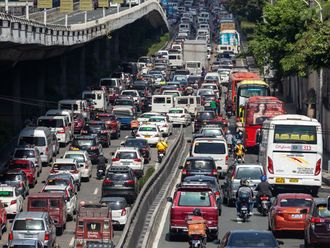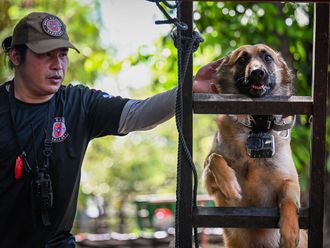Manila: Local government units that have started issuing identification cards for Filipino-Muslims outside of the southern Philippines, where a city was besieged by Filipino-Muslim terror groups since May 23, were criticised for creating a big divide between Christians and Muslims, sources said.
“It is discriminatory to issue identification cards only to a certain sector of the society. We suggest, if we start checking on the identity of individuals, it should not aimed at certain sectors of our society. It must be applicable to everyone,” said military spokesman Brigadier general Restituto Padilla.
Every Filipino must understand by now that the Daesh-inspired Filipino-Muslim terror groups that attacked Marawi City starting May 23 “have nothing to do with ([real principles of] Islam, and are not fighting a religious war,” said Padilla.
“Not all our brother Filipino- Muslims are part of the rebellion in Marawi City. The attackers are few [they do not represent the entire Filipino-Muslims in the south],” argued Padilla, adding, “Since the start of the clashes, this [war] was not a fight between religions. This is a [government’s] war against bad forces that brought chaos in Marawi City.”
The military has called for the establishment of a national ID system for everyone and not to isolate the Filipino-Muslims, Padilla said.
Gov. Mujiv Hataman, of the Autonomous Region in Muslim Mindanao (ARMM), also said, “We believe this policy clearly discriminates against the believers of Islam and could set a dangerous precedent. It could also ignite anger among young Muslims who are the primary target for recruitment of extremist groups.” Marawi City is part of the ARMM.
The local government unit of Paniqui, Tarlac, in central Luzon was criticised for issuing an ID system for Filipino-Muslims only.
A Muslim community in Batangas, southern Luzon, initiated the issuance of identification cards to members to protect them from being harassed, and to prevent them from joining extremists.
Filipino-Muslim terror groups, assisted by foreign extremists, initially captured 19 of 96 villages in Marawi City starting May 23, to establish an Islamic state in the Philippines, and also to other parts of Southeast Asia’s Indonesia and Malaysia.
President Rodrigo Duterte wanted to extend his 60-day martial law rule in Mindanao, which began on May 23. The first one was approved by the Apex Court only last week.
Terror snipers still man high buildings. Hostages, trapped civilians, and booby traps have remained in the war-torn city.












